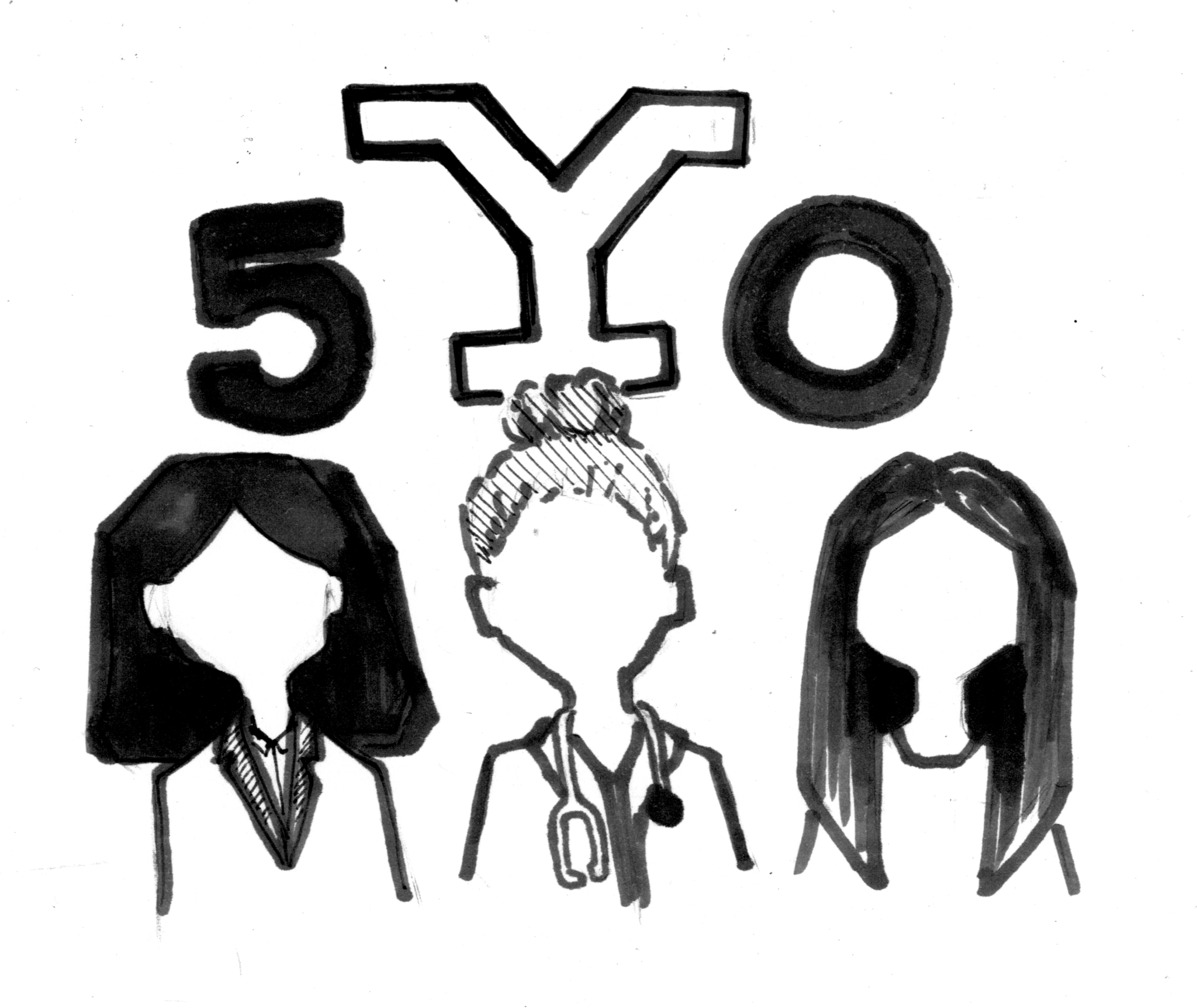
Keyi Cui
On Thursday, Sept. 19, the University begins a weekend celebration of the 50th anniversary of coeducation at Yale. A half century ago — almost to the day — 575 women broke 268 years of tradition and officially registered as Yale undergraduate students, along with 4,000 men. There were 151 sophomores and 194 juniors admitted as transfer students and assigned to live in the residential colleges. As for the entering class of 1973, 230 women were among the freshmen making the traditional rite of passage through Phelps Gate onto the Old Campus. I was one of them.
For the past two years, I’ve been part of the steering committee tasked with creating an event to honor these first women who matriculated in the fall of 1969. And during that time, I’ve done a lot of reflecting on both the past and the present. All of us on the committee saw this as a once-in-a-lifetime opportunity to bring these women back together for a chance to reconnect and reflect — not only on our experience at Yale, but also how it has shaped our life’s journey.
There are far too many thoughts, nuances and complexities to try to condense into a short article. (Yale is asking us to do both oral and written histories for the library archives, which I think will be an invaluable resource for scholars in the future.) So I’m going to give just a few random musings on what it’s meant to me to be a Yalie.
I came from public school and had been in a coed environment since nursery school. So studying with boys, and being better than they were at certain things, wasn’t a big deal to me. I was really interested in academics and art, so when Yale announced it was going coed, it seemed like the perfect place for me. After I was accepted, people immediately began asking — wasn’t I intimidated by the idea of going there? Actually, the thought hadn’t occurred to me. I was simply excited about the challenges of college.
Yale, however, did present its own unique set of challenges to the First Women. We all have countless funny, and not so funny, stories of trying to find our place, both inside and outside the classroom, as the University scrambled madly to work out all the kinks. A floormate had a professor announce on the first day of class that no woman would ever get more than a grade of C from him in any of his courses. In my first lecture, I was busily getting my notebook and pen ready when I noticed the room had gone eerily silent. I looked up to find 80 men staring at me in open-mouthed wonder, as if I was some exotic exhibit that had wandered in from the Peabody Museum. There were no ladies’ rooms anywhere on campus — we had to sprint back to Vanderbilt Hall for a bathroom break.
So along with our schoolwork, we all learned the importance of resilience, grit and a sense of humor. And those were lessons for a lifetime. I made friends, both with women and with men — I think that surprised the men more than it did me. Yale still had a strong prep school vibe, and they weren’t used to thinking of women as anything other than “dates.” But that changed … as did Yale itself, enriching its old traditions with new values and perspectives. True education is all about evolving and being open to new ideas.
There was also a special camaraderie in the freshman class. We had all come into Yale together and there was a definite bond in being classmates from the very beginning. The friends I made on Old Campus are still some of my best friends today.
Reminiscing about the past is fun, but its real importance is to understand and appreciate how it has shaped the present — and the future. One of the main purposes of the celebration weekend is to give the First Women a chance to share life experiences and talk about where they have come from and what goals still lie ahead. Former President Kingman Brewster and the Yale Corporation took a leap of faith in deciding to admit women in 1969. They hoped — I think they prayed — that we would become part of the Yale tradition of leadership, in both thought and deed. I believe they would be very proud of their legacy.
When I look at my fellow First Women, I’m in awe of the depth and breadth of their accomplishments. Doctors, lawyers, scientists; politicians, journalists, financiers; artists, writers, musicians; volunteers quietly making their communities better places to live for everyone. Few of us are famous, but we’ve brought passion, determination and enthusiasm to our endeavors.
I invite the current students, especially the women, to take the time to see the exhibit in Sterling Memorial Library on the First Women, and perhaps stop and chat with some of us over the weekend about our experiences. But most of all, I hope this generation will take inspiration from what we did in breaking down barriers and do the same for future generations, so that everyone has a chance to develop their talents and skills to the fullest.
Andrea DaRif ’73 ART ’74 is an author of historical fiction and is Executive Fellow of Saybrook College. She can be reached at andreapenroseauthor@gmail.com.







